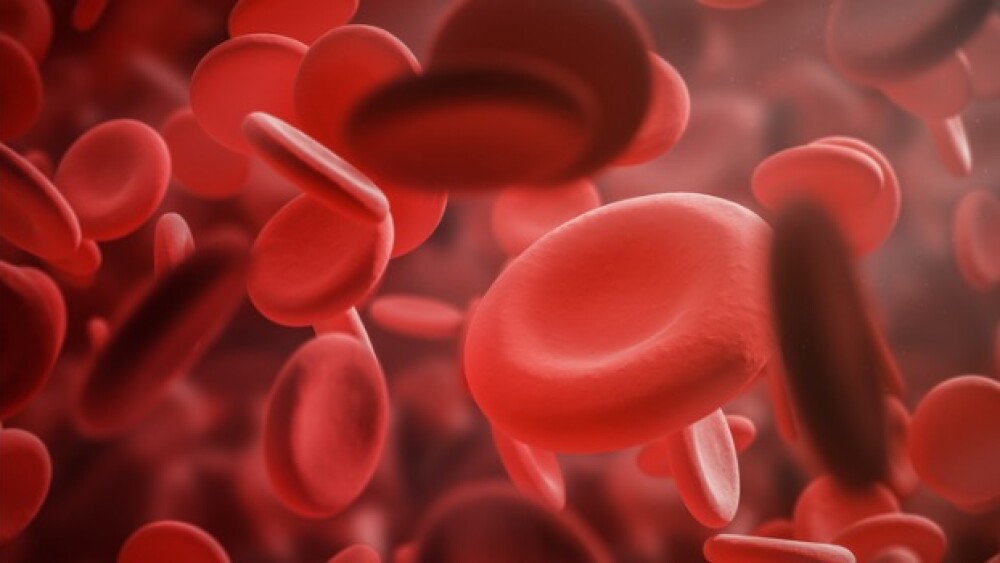On the heels of Takeda’s $300 million licensing deal for rusfertide, Protagonist Therapeutics’ peptide mimetic lowered hematocrit levels in patients with polycythemia vera, a type of blood cancer.
Pictured: Illustration of red blood cells/iStock, ismagilov
Protagonist Therapeutics on Wednesday announced that its investigational peptide therapy rusfertide met its primary efficacy endpoint in the Phase II REVIVE trial, demonstrating significant erythrocytosis control in patients with polycythemia vera.
The results, published Thursday in The New England Journal of Medicine, showed that mean maximum hematocrit dropped to 44.5% after treatment with rusfertide, compared to 50% during the first 28 weeks of the study, prior to rusfertide administration.
In addition, 60% of patients in the rusfertide arm showed treatment response, defined as hematocrit control below 45% without needing phlebotomy, versus 17% in the placebo group. This effect was statistically significant, with a p-value of 0.002, according to the NEJM paper. Rusfertide also lowered individual symptom scores in patients who presented with moderate or severe symptoms.
Protagonist CMO Arturo Molina in a statement said that REVIVE’s data could position rusfertide as a “novel treatment option” for a wide range of polycythemia vera patients, many of whom can poorly tolerate standard of care treatments.
The company will continue to assess rusfertide’s long-term safety and durability of response in REVIVE. Protagonist is also running the Phase III VERIFY study—a global placebo-controlled study with 250 patients enrolled—which is designed to test the efficacy, symptom burden and safety of a once-weekly subcutaneous, self-administered rusfertide injection. Data from VERIFY are expected in 2025, according to Molina.
Affecting approximately 160,000 patients in the U.S., polycythemia vera—a type of blood cancer—is a disease characterized by having too many red blood cells. Patients with this condition often suffer from a higher risk of cardiovascular events and other systemic symptoms, including itching, night sweats, fatigue and difficulties concentrating. When left unchecked, polycythemia vera can lead to heart attacks, stroke and death.
Currently, there is no cure for polycythemia vera. Patients are often managed with medications and other interventions that keep hematocrit levels below 45%. These include phlebotomies, which can sometimes also lead to iron deficiency, according to Molina.
Rusfertide is an investigational peptide mimetic of the hormone hepcidin, which is a key player in the regulation of iron equilibrium and healthy development of red blood cells. Its mechanism of action allows rusfertide to lower hematocrit levels to within acceptable ranges without raising the risk of iron deficiency.
Late last month, Takeda bought into the potential of rusfertide and paid Protagonist $300 million upfront for a worldwide license to develop and commercialize the candidate. Protagonist will remain in charge of the Phase III VERIFY trial and through U.S. regulatory approval, while Takeda will have rights for ex-U.S. development and will lead global commercialization activities.
Tristan Manalac is an independent science writer based in Metro Manila, Philippines. Reach out to him on LinkedIn or email him at tristan@tristanmanalac.com or tristan.manalac@biospace.com.






